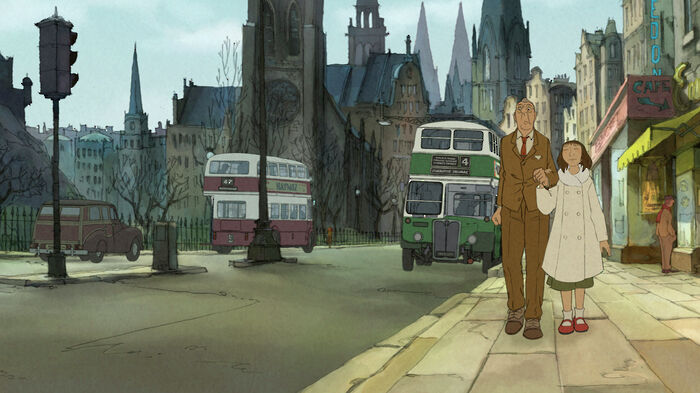Review: Reeling in The Net
Ruben Traynor mulls over the meditative political and moral ambiguity of this drama, the winner of Best Film at the Cambridge Film Festival

Kim Ki-Duk’s The Net is, on the surface, a far cry from the meditative story of a Buddhist monk and his teacher he is best known for, Spring, Summer, Fall, Winter... and Spring. Ki-Duk’s most recent work is a politically charged amalgamation of genres, as equally a dystopian spy thriller as it is a modern day Greek tragedy. Underneath, however, Ki-Duk’s circular narrative structure that underpins Spring…, alluded to in the ever so memorable (yet frustratingly hard to recommend) title, remains key.
“Paralleled are the bureaucracies, the misplaced idealism of the people, the patriotism, the hierarchies, and even the food”
The Net is the story of a North Korean fisherman who, when his boat breaks down, finds himself in the South accused of being a spy, facing Kafkaesque bureaucracy and increasing violence in his attempts to return. The story’s structure is one both Campbell and Aristotle would surely be proud of – circles and parallels key to the narrative, binaries overturned, becoming echoes of each other. Certain repeated phrases saturate the screenplay: “the dictatorship”, to “brainwash”, and accusations of “spy!”.
These highlight the cyclical narrative: criticising both sides of the 38th parallel equally – explicit criticisms of the North applicable always to the South also. Both sides are shown to be trapped in their ideas of the other, defining themselves through their perception of the enemy yet consequently tending towards the same extremes. Paralleled are the bureaucracies, the misplaced idealism of the people, the patriotism, the hierarchies, and even the food.
In a particularly memorable scene, the protagonist, Nam Chul-woo, is driven into the centre of Seoul and left to himself. He refuses to open his eyes and see the alien consumerist landscape of the city centre as he fears criticism and questioning when he returns to the North. The sightless drive recalls an analogous scene in Lost in Translation in its hazy montage style; however, the urban landscape here is blurred, the camera focused only on Chul-woo’s face. Less Lost in Translation than lost in fear instilled by competing ideologies (perhaps Ki-Duk’s title is snappier, on reflection).
When the protagonist is forced to see the city, he is not won over by the consumerist ‘delights’ on neon-brimmed show, as the Southern bureaucrats believe he will – both “brainwashed” by their countries: the metaphor of self-imposed blindness is effective if obvious, reflective of Ki-Duk’s overt style. A Lynchian descent follows as Chul-woo’s trip takes a dark turn into the depths of Seoul, climaxing in the film’s only fight scene, shot over-the-shoulder in satire of the gratuitous violence of often ignorant video games popular in South Korea.
A deeply moving denouement follows briefly – the protagonist’s relationship with a sex worker a harsh, if simplistic, critique of South Korea’s ruthless individualism, shockingly paralleled with the brief husband-wife interaction in the North that opens the film. “Freedom doesn’t mean equality”, as his guard subsequently tells him.
The film manages to work as both political allegory and poetic realism, the story moving due to its political relevance, a rare feat. The final shot is so incredibly haunting, so imposingly misanthropic, and so poignant in its culmination of a certain innocent visual motif – a teddy bear. The viewer is left with only extreme catharsis, the ending so touching in its dreaded predictability: a circle, a lack of an escape.
Framing the film is a shot of a group of white letters on a green hill over Chul-woo’s village in the North, eerily reminiscent of the Hollywood sign that so frequently opens American films, a subversion perhaps of this well-worn trope, its overbearing influence symbolic of the corrupt hierarchies that flood The Net. Were it an explicitly hopeful film, the conclusion of a review may look towards Korean reunification, however it is not, and the film is important for this, leaving the answers up to the viewer – and there certainly is a lot to answer for here
 News / Trinity exam burglar jailed for 11 months18 July 2025
News / Trinity exam burglar jailed for 11 months18 July 2025 News / Newnham students warned against using ‘secluded or concealed routes’ in evening after student followed16 July 2025
News / Newnham students warned against using ‘secluded or concealed routes’ in evening after student followed16 July 2025 Lifestyle / Seven species of Sidge17 July 2025
Lifestyle / Seven species of Sidge17 July 2025 News / Fenner’s cricket ground suffering ‘dismal decline,’ action group says 17 July 2025
News / Fenner’s cricket ground suffering ‘dismal decline,’ action group says 17 July 2025 Interviews / The Cambridge student hoping to become mayor of Baltimore: Thomas ‘TJ’ Jones16 July 2025
Interviews / The Cambridge student hoping to become mayor of Baltimore: Thomas ‘TJ’ Jones16 July 2025








